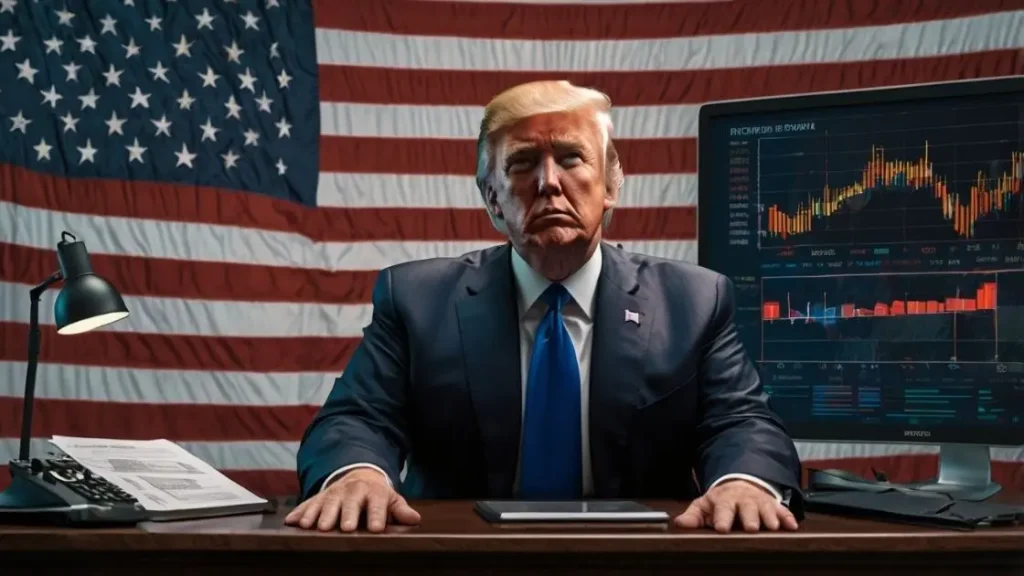CTFC Launches ‘Crypto Sprint’ To Advance Trump’s Plan To Transform America Into Global Crypto Capital

Key Takeaways
1. CFTC launches ‘Crypto Sprint’ to support U.S. crypto growth.
2. SEC and CFTC align to simplify token regulations.
3. Trump-era crypto report proposes stablecoin support, no CBDC.
4. Crypto-friendly tax reform and new pro-crypto CFTC chair expected.
Following the Securities and Exchange Commission’s (SEC) ‘Project Crypto’, the US Commodity Futures Trading Commission (CFTC) has launched its ‘Crypto Sprint’ program to implement the Trump administration’s digital asset-related policy recommendations.
CFTC Acting Chair Caroline Pham said on Friday that the commodities and futures regulator is working to fulfill President Trump’s vision to make America the “crypto capital of the world” and aims to provide regulatory clarity and foster innovation in the digital assets market to deliver on the White House’s promise of ushering in the “Golden Age of Crypto”.
Pham also stated that her agency is working closely with the SEC chairman, Paul Atkins, and Commissioner Hester Peirce on its ‘Project Crypto’ initiative, which was announced on Friday.
President Trump’s Working Group on Digital Assets Publishes Report on Crypto Policy, Banking Services, Stablecoins, and Taxation

On July 31, the President’s Working Group on Digital Asset Markets published a comprehensive 168-page report that laid a roadmap to bring crypto to the mainstream financial system in the US, while fostering innovation and growth in the sector. The long-promised report outlined policy recommendations for regulating the digital asset class through market structure, jurisdictional oversight, banking regulations, protecting US dollar hegemony via stablecoins, and taxation.
The first issue outlined in the report released on Wednesday was to establish a taxonomy by clearly defining which cryptocurrencies are securities and which are commodities. According to the recommendations, jurisdictional oversight should be shared between the SEC and the CFTC, with the latter having authority to regulate spot crypto markets for non-security digital assets.
The working group called on both agencies to work together on crypto oversight, with tokens deemed commodities governed by the CFTC, while security tokens are subject to SEC regulations. The report’s authors added that a clearly defined crypto market structure would make the US a global leader in digital assets.
Another key proposal was allowing banks the ability to custody crypto assets and provide digital asset-related services to their customers. The group called on banking regulators to streamline the process of acquiring a bank charter and make the requirements more transparent.
The report touched on the need to embrace stablecoin to protect the US dollar’s global dominance and urged lawmakers to pass the CBDC Anti-Surveillance State Act, a bill prohibiting the research and development of a central bank digital currency (CBDC) in the United States. It also highlighted a unique feature of stablecoins, which is that law enforcement can counter illicit use by coordinating with issuers to freeze and seize assets.
Its final recommendation was for Congress to establish a tailored tax regime for cryptocurrencies that takes into account the unique features of the asset class, including staking. The report has called for legislation that treats crypto as a new class of assets subject to modified versions of tax rules applicable to securities or commodities for federal income tax purposes.
Also Read: Best Crypto to Buy Now as US Treasury Signals a New Bull Run for Digital Assets
CFTC and SEC to Work Together on Crypto Asset Regulations
President Trump’s Working Group on Digital Assets made 18 recommendations to the CFTC, two of which were direct requests. The first one was for the agency to produce guidance on how cryptocurrencies could be considered commodities, how the registration requirements would work with decentralized finance (DeFi), and guidance for CFTC-regulated entities on how they can work with crypto.
The other request was for the agency to consider how to amend its rules to accommodate blockchain-based derivatives. The remaining recommendations concerning the CFTC were to be shared with the SEC and the US Department of the Treasury.
The SEC and the CFTC were also told to work together on creating a rulemaking process using their existing authorities to provide “fulsome regulatory clarity”. They have also been ordered to create a regulatory sandbox and explore how to allow registrants to offer multiple services “within a single user interface”.
While the CFTC’s Crypto Sprint announcement did not specify the suggestions on which the Commission would work, Acting Chair Pham reiterated that she will work with SEC Chair Atkins to draft rules around crypto distributions, custody, and trading. Earlier this year, the agency held meetings with various crypto executives to discuss the industry and has already withdrawn what it called “outdated staff advisories” promoted by the previous leadership under the Biden administration.
It recently completed consultations on allowing 24/7 crypto derivatives trading and perpetual contracts, a move widely backed by industry players. In May, CFTC Commissioner Summer Mersinger stated that crypto perpetual futures contracts could receive regulatory approval “very soon”.
Meanwhile, Trump has nominated Brian Quintez, former global head of policy at Andreessen Horowitz’s crypto arm, a16z, as chairman of the CFTC. Quintez served as a CFTC commissioner under the first Trump administration (2017-2021), having been nominated to the role by President Obama in 2016. He is awaiting a nomination hearing, which was scheduled to take place on August 6, but has been postponed at the White House’s request.
Crypto & Blockchain Expert
